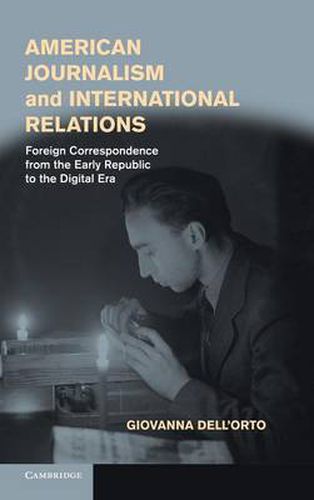Readings Newsletter
Become a Readings Member to make your shopping experience even easier.
Sign in or sign up for free!
You’re not far away from qualifying for FREE standard shipping within Australia
You’ve qualified for FREE standard shipping within Australia
The cart is loading…






American Journalism and International Relations argues that the American press’ disengagement from world affairs has critical repercussions for American foreign policy. Giovanna Dell'Orto shows that discourses created, circulated and maintained through the media mold opinions about the world and shape foreign policy parameters. This book is a history of US foreign correspondence from the 1840s to the present. Americans’ perceptions of other nations, combined with pervasive and enduring understandings of the United States’ role in global politics, act as constraints on policies. Dell'Orto finds that reductive media discourse (as seen during the 1967 War in the Middle East or Afghanistan in the 1980s) has a negative effect on policy, whereas correspondence grounded in events (such as during the Japanese attack on Shanghai in the 1930s or the dissolution of the Soviet Union in 1991) fosters effective leadership and realistic assessments.
$9.00 standard shipping within Australia
FREE standard shipping within Australia for orders over $100.00
Express & International shipping calculated at checkout
American Journalism and International Relations argues that the American press’ disengagement from world affairs has critical repercussions for American foreign policy. Giovanna Dell'Orto shows that discourses created, circulated and maintained through the media mold opinions about the world and shape foreign policy parameters. This book is a history of US foreign correspondence from the 1840s to the present. Americans’ perceptions of other nations, combined with pervasive and enduring understandings of the United States’ role in global politics, act as constraints on policies. Dell'Orto finds that reductive media discourse (as seen during the 1967 War in the Middle East or Afghanistan in the 1980s) has a negative effect on policy, whereas correspondence grounded in events (such as during the Japanese attack on Shanghai in the 1930s or the dissolution of the Soviet Union in 1991) fosters effective leadership and realistic assessments.